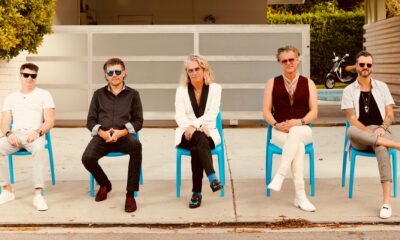Interviews
STEREOPHONICS Discuss Their Songcraft, THE TRAGICALLY HIP, DAVID BOWIE and Signing with RICHARD BRANSON [w/ Audio]
Kelly Jones and guitarist extraordinaire Adam Zindani of UK band Stereophonics joined us recently for a conversation touching on David Bowie, The Tragically Hip, and more before their show at Toronto’s Danforth Music Hall.
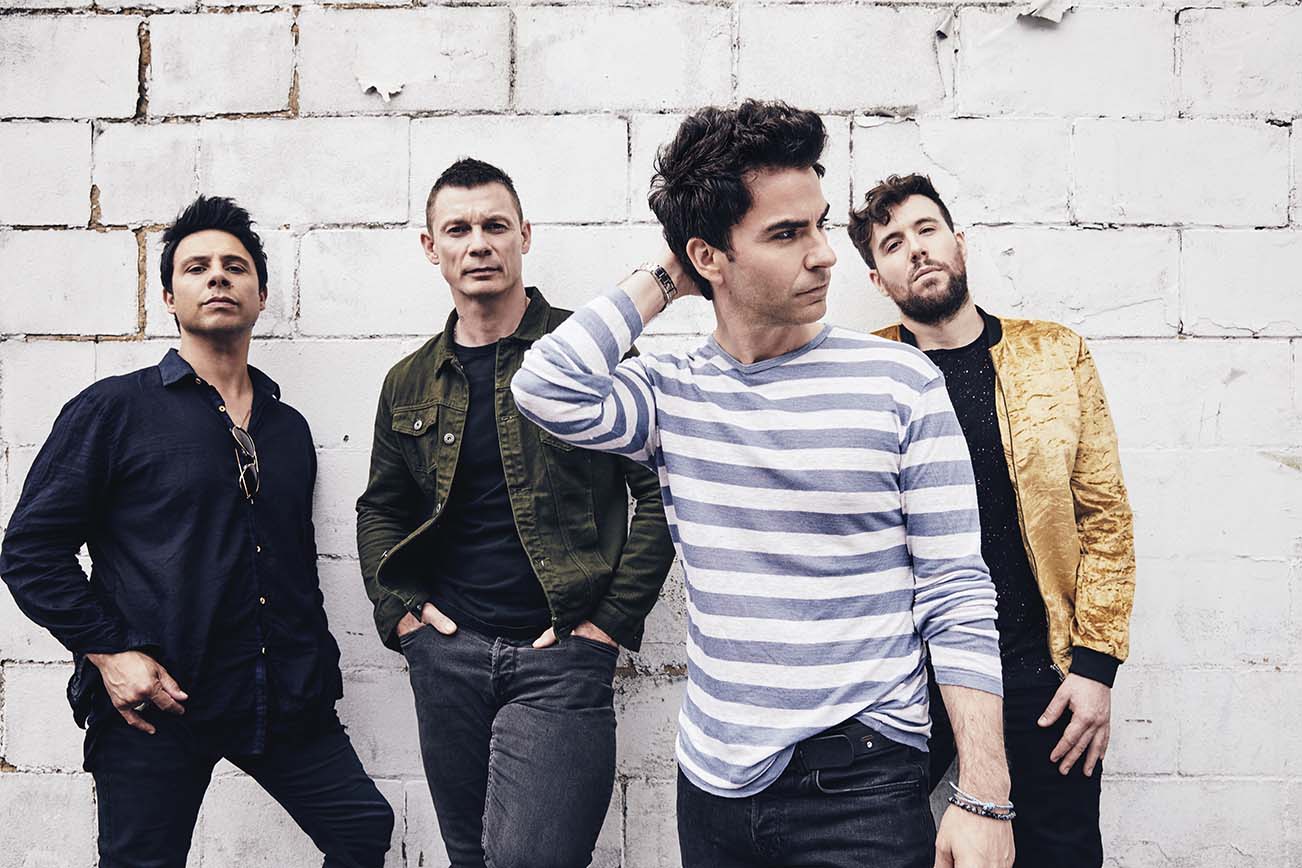
The multi-talented Kelly Jones and guitarist extraordinaire Adam Zindani of UK band Stereophonics took some time before their recent Toronto performance to field a few questions with PureGrainAudio. This was a mere hours before their incredible Danforth Music Hall performance, a show that wound up being a celebration of sorts around The Tragically Hip. Both Rob Baker and Johnny Fay from The Tragically Hip attended the Toronto show, with Fay stepping up behind the drum-kit mid-set to perform “Blow At High Dough” and “Locked In The Trunk Of A Car” to an elated Toronto audience.
There aren’t enough kind words on the planet to lob towards Stereophonics. They remain a sorely underrated band in the United States, appreciating a slightly larger following here in Canada. In The UK and Europe, the group is revered as one of the best rock bands to emerge in the past 25 years, releasing enough commercial singles to justify a two-CD compilation of greatest hits in 2008 entitled Decade in the Sun: Best of Stereophonics. The band’s studio work is second only to their live presence, as they are always able to deliver a formidable live assault whether they play a room that holds 1,500 people or a stadium that holds 25,000.
The audio for this interview is presented here via Soundcloud for fans who’d like to hear Kelly and Adam’s unedited answers.
So, you’re twenty years in the official Stereophonics name. You could very easily have just toured your first album and done a 20-year sort of anniversary thing. I like that you went into the studio and did a completely original album.
Kelly Jones: Yeah well, we did one show for Word Gets Around in London which was fun learning all the old songs and all the b-sides again. But I don’t think it was that relevant to do a whole tour of it. There’s a lot of fans that know the band from the last three albums. Loads of kids come to the shows, and they all know the first album, but you know there are lots of people who have always been coming to see the shows. Yeah, it was good. We try to make a record every couple of years.
Here’s the video for “All In One Night” off Scream Above The Sounds.
Can you tell me if your approach to writing has changed radically from when you first started out?
Jones: No, I wouldn’t say the approach to writing itself has changed that much. I guess the thing is you write about changes as life changes, as you grow up and stuff and other things happen in your life. Now, generally I normally write most of the stuff on a guitar with a melody and finish the lyrics off or maybe the last three albums I’ve added a bit more piano writing.
Now at what point do you bring music to the band and have everybody collaborate on it?
Jones: It’s different on different records really. Sometimes we jam something out, and something will come out. Ever since we’ve had a little studio in London, I do quite a lot of the ideas with Jim Lowe, our engineer – some kind of piece of sketch together and the boys come in and add their bits to it. The Graffiti album we all went over to Belgium and stayed in the studio with them, and we did lots of stuff live over there. Last week we did a session with George Drakoulias with all the band in the room together. So it’s never really one set way really ultimately I’d like to get all the band as live as you can and then have some time to mess about with it later on.
You’ve worked with Jim Lowe more than any other producer. What is it about him that you really dig?
Jones: Ah, he’s mad! He’s a good friend. You don’t really need to speak to Jim. He’s very fast.
Adam Zindani: He’s good at interpreting stuff. Yeah, he’s good at taking an idea and producing it. You know he does a good job.
Jones: He’s as dedicated as the band member. If that makes sense? Some producers like to come in and do their part and go on to the next project. But if you start a project with Jim, he’ll stick with you like a member of the band really until it’s finished. He’s as hungry for it as you are. That’s a nice feeling to have when you get home and, you know, start sending ridiculous text messages about the high-up being too loud. He’s actually (well maybe he’s pretending) as interested as you are. (laughs)
The Scream Above The Sounds album dropped last October through Stylux Records and Parlophone.
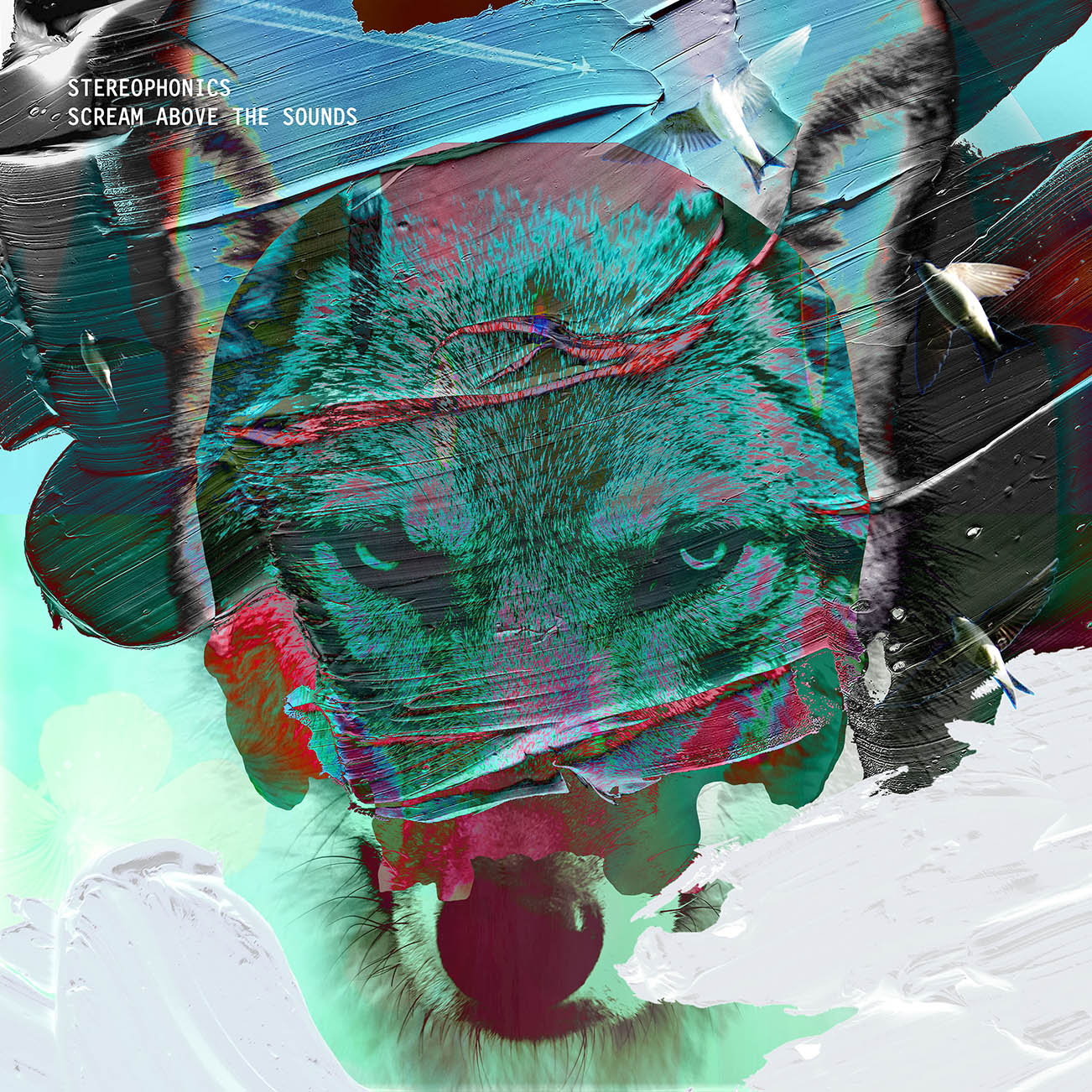
When you go into a new album, do you go into it with an idea of certain things that you want to bring into it? You’ve got trumpets and saxophone in this latest album (Scream Above The Sounds). You’ve worked with gospel backing chorus vocalists on albums before. Was there a mantra for this album?
Jones: I think over the years you stumble across different sounds by accident you know whether it’s different vocal ideas or horn sections or you’ve done gigs with a band, and you like what they’re doing, you know? You can do a tour with The Strokes in 2004, and you kind of like the eighths beats, and you do a couple of songs like that, and then you do a few shows with Aerosmith and The Black Crowes, and you bring in some gospel singers, you know? As a musician, you take in what’s around you. So, I guess the good thing about our band is we’ve never really boxed ourselves in. We never really wanted to only sound like one thing. We are quite open to ideas. Whether it’s a Neil Young influence thing or a Sex Pistols thing or a Trent Reznor thing it doesn’t really matter really, it can be coming from anywhere.
Can you talk a little bit about your connection to Canada. You’ve toured here, I think, on every album.
Jones: Well we came here in very early ‘96, ‘97. MuchMusic did quite a lot of support with us back in the day, and then we did the big arena tour with Our Lady Peace, and they did our arena tour in the UK, and we’ve built up quite a good following really. I’ve always felt Canada is a bit like Wales you know? You’re right next to the massive England or America. It seems the Kiwis are next to Australia and we always end up working with the Kiwis, Canadians and Welsh people and I don’t know why that is. It’s a very storytelling kind of connection in some ways, but people always took to us, a lot more than they did in America really.
I saw, it’s got to be about fifteen years ago, that you dropped a wonderful live version of “New Orleans Is Sinking” while you were performing. And then you told everybody in the audience that if you played that in the UK you could say you wrote it and no one would know any different.
Jones: We did! (laughs) We did, yeah.
It’s about time for some classic Stereophonics with the video for “Maybe Tomorrow.”
Did you ever get to meet Gord Downie?
Jones: Yeah. Gord was at those shows at the Opera House in Toronto back in the day, and he would bring us gifts and stuff. We met him first in the Columbia Hotel in London. Was in touch on our last tour actually, because a lot of our crew work for The Hip as well. And Johnny (Fay) is coming down tonight, and Rob Baker is coming down tonight. So, yeah, it’s very sad. He was one of my main influences as a lyric writer. I mean, I love that guy’s words, and I love the band. It’s my go-to band. Them and AC/DC, they’re my two favorite bands.
I owe you a debt of gratitude for getting me out to see David Bowie because I went to see him because you were opening. (laughs) And then he stopped touring.
Jones: Yeah, that was the last one. I know.
Do you have anything that you can say about Bowie? Did you get some candor with him and spend time with him.
Jones: He was lovely on tour. I think what we’ve learned in hindsight is that he wasn’t playing a character on that tour. I know it sounds obvious now as the album was called Reality. He wasn’t playing anybody apart from himself. So when he was backstage, he was hanging around with us talking to us about kids. We had a fireside football tournament, he’d be on the side of the pitch heckling us. He would watch our soundchecks. He was really… from my experience with him, he was a lovely, normal, grounded guy. So I’m glad that I met him at the time that I met him.
You were the first band signed to Branson’s V2 label back in whatever that was, ‘96 or ‘97. Was that a surreal thing for you? To have someone like him and his label to come up to you and want to move forward with him to debut his label?
Jones: Yeah. I mean, as kids to us. You know Richard Branson was huge.
Zindani: He was a huge big star really wasn’t he? A really big thing.
Jones: Because he did the Virgin Records thing. You know with the Sex Pistols and Culture Club and all that sort of stuff. And then all that folded. And then he started this new label, and he called my house and asked me to sign with them to be the first band. You know you’re kind of a guinea pig and a flagship all at the same time. And it worked in a lot of countries. It didn’t work everywhere. But he was, as we all know, he’s a very ambitious man. He likes to make things work, and he tries to employ the best people around him. When he was at his peak, he was going very well.
Check out exclusive live shots of Stereophonics @ Danforth Music Hall on September 10th.
There’s a lyrical ease to Stereophonics songs that I think a lot of musicians are probably quite envious of. You make it sound really easy. And I’m sure it’s not easy to write some of these songs. Do you feel like this stuff comes to you easier than other musicians when you talk to any of them about their songcraft?
Jones: I speak to some bands, not so much now, but when I was younger. I mean I always used to talk to people in British bands, and they always used to refer to lyrics as homework. I never used to feel of any of it as homework. I always used to like writing short stories and scenes and stuff like that. So I’ve always had an interest in characters talking and stuff. I was lucky really, I could put that into the music and all of a sudden songs like “Billy Davey’s Daughter” and “Local Boy” and “A Thousand Trees” stemmed from these little ideas I was writing as a short story. And soon as I knew that could work I knew that I wouldn’t always have to write everything from my own perspective – I could make things up. I put my own interpretation through it so. I’ve never worried about lyrics, and I’ve never forced lyrics, so I let them come when they naturally come. I always feel I’ll have something to say because I like observing things.
Have you ever toyed with the concept album, where you tell a story or a group of songs?
Jones: I guess we got close to that on Graffiti On The Train. That was kind of similar. We were almost kind of went 2112 on that, but we didn’t go quite as far as that.
Zindani: It was very story-led, that one was.
This is a bit subjective, but what do you think is the album that you would tell a fan that doesn’t know anything about your band to check out first?
Jones: Me, personally, I would probably say Graffiti On The Train but if you ask a fan, they would probably say Word Gets Around. I don’t know. It’s hard from the inside out I guess.
Now how about some really classic Stereophonics? Here’s the video for “Dakota.”
And lastly could you tell me what it’s like for you as an artist to keep up with… life I guess; staying relevant, social feeds, just the marketing and delivery of music in this digital age?
Jones: I think life is the hardest bit. Mixing family and work. I’ve got three kids… Adam’s got four. And we like being family people. So the balance of going away and coming back. We like doing three weeks at the most and then going home. So there’s quite a strain on an energy level. There’s a lot of stuff to do all the time you know. But all the other stuff I don’t really worry about social media and how records are released. You make songs, and somehow people will find them.
That’ll change forever and ever, amen. And that’s up to somebody else really, somebody else’s job. Things come and go. You know I think people have got a very big bullshit factor. I think if a song is not good enough it doesn’t matter how many times you try to sell it. People, they don’t listen to it. It’s getting more and more like that I think. When it first all started up, I think record companies try and push this media and all this, but I think people just make up their own minds.
Zindani: I think people are getting very wise to that now.
You put a lot of feeds up when you’re creating. There’s always these studio updates and photographs.
Zindani: It’s a creative thing. You know, we’re not trying to do it just to have something on Twitter. It’s not about that. It looks that way, and it sounds that way because we care about the art of it. That’s the most important thing to it.
Have you looked at the Pledge Music model where you would do something and involve some of your fanbase and have them crowdfund your music?
Jones: No. I’ve heard of it but no. I mean I like (going back to the Tragically Hip here) I liked when they did stuff for their fans like when the fans pick their greatest hits records. You know, pick YOUR favorites. When you have interaction with them. You know, a band like them or a band like us or AC/DC it’s all about a real fanbase. You know so you can have a communication with people like that. On a personal level when it comes to Twitter and responding to things people say, no, I’m not into all that. That’s just crazy.
You’ve got a greatest hits package that’s either one disc or two discs. And your fans would say that even the two-disc version doesn’t capture everything.
Jones: It’s probably time for volume two. (laughs)
Everything you put out has been really choice.
Jones: But there’s no point in putting these collections out because everybody is only buying single tracks.
-

 Culture5 days ago
Culture5 days agoCirque Du Soleil OVO Takes Leeds Fans on a Unique, Unforgettable Journey [Photos]
-

 Alternative/Rock2 weeks ago
Alternative/Rock2 weeks agoThe Hives Bring Their Swedish Swagger to Leeds O2 Academy [Photos]
-

 Hardcore/Punk4 days ago
Hardcore/Punk4 days agoHastings Beat Punks Kid Kapichi Vent Their Frustrations at Leeds Beckett University [Photos]
-

 Alternative/Rock4 days ago
Alternative/Rock4 days agoA Rejuvenated Dream State are ‘Still Dreaming’ as They Bounce Into Manchester YES [Photos]
-
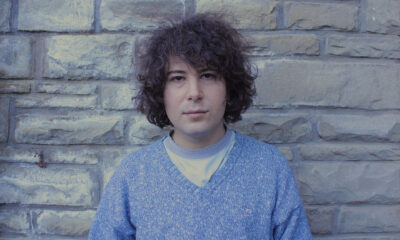
 Indie6 days ago
Indie6 days agoMichele Ducci Premieres Bouncy New Single “You Lay the Path by Walking on it”
-

 Alternative/Rock7 days ago
Alternative/Rock7 days agoWilliam Edward Thompson Premieres His Stripped-Down “Sleep Test” Music Video
-

 Country1 week ago
Country1 week agoJayce Turley Reflects on “Misery” with the Premiere of His New Single
-
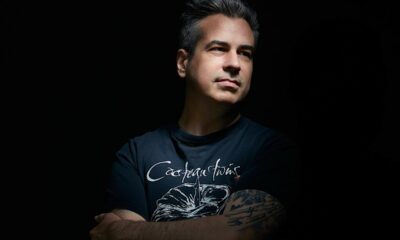
 Dance/Electronic2 weeks ago
Dance/Electronic2 weeks agoPerfect Female Type Premieres Synthwave Single “Science of Love”

